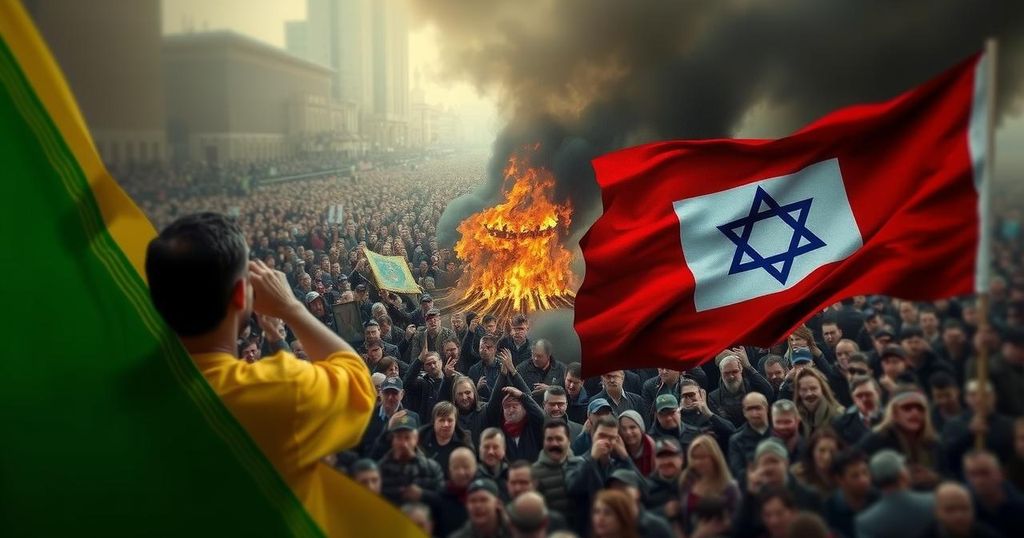The Hezbollah-Israel ceasefire, initiated on November 27, 2024, signifies a crucial moment in Middle East politics, allowing Iran to consolidate its influence while redirecting focus from Hezbollah to nuclear negotiations and regional stability. The situation remains tenuous with the arrival of a new U.S. administration potentially complicating dynamics, amid differing narratives from the involved parties regarding the effectiveness of the ceasefire.
The recently brokered ceasefire between Hezbollah and Israel, facilitated by the United States and France, represents a crucial development in Middle Eastern geopolitics. It mandates Israeli military withdrawal from southern Lebanon and the reallocation of Hezbollah’s arms, while simultaneously increasing the Lebanese army’s presence in the border region. Despite Prime Minister Benjamin Netanyahu’s assertions that military actions have significantly weakened Hezbollah, critics from within his government argue that the ceasefire poses risks without establishing necessary security measures.
From an Iranian perspective, the ceasefire has been largely welcomed. Tehran perceives this agreement as essential to preserve Hezbollah’s strength in the region. Experts suggest that Iran played a pivotal role in persuading Hezbollah to accept the ceasefire, concerned that continued conflict would further harm both Hezbollah and Iranian interests. Moreover, it provides Iran a strategic respite to focus on other pressing issues including nuclear negotiations, domestic challenges, and their role in Syria.
Interestingly, the ceasefire’s timing correlates with the impending inauguration of President-elect Donald Trump, raising uncertainties regarding regional stability. Iran must balance potential American and Israeli escalations following Trump’s return to office against its own strategic objectives. The relationship between renewed U.S. sanctions and regional hostilities highlights the precarious nature of the ceasefire.
The divergent narratives surrounding the ceasefire underscore its complexity. While Israel positions itself as having effectively compelled Hezbollah into negotiations, Iran and its allies can frame the ceasefire as evidence of Israeli vulnerabilities. Ultimately, both countries remain on high alert, suggesting that while a temporary cessation of hostilities has been achieved, tensions persist with the potential for future escalation.
The ceasefire between Hezbollah and Israel, which took effect on November 27, 2024, is seen as a significant geopolitical maneuver influenced by various actors, including the United States and France. The agreement includes provisions for Israel’s withdrawal and the disarmament of Hezbollah in specific areas, as well as an augmented Lebanese military presence. The context of this situation includes ongoing Israeli military operations against Hezbollah, internal Israeli political dissent regarding the ceasefire, and the broader implications of U.S. foreign policy under the approaching Trump administration.
In conclusion, the Hezbollah-Israel ceasefire represents a complex and multifaceted development in Middle Eastern politics. While Iran appears to support the cessation of hostilities for strategic reasons, the approaching changes in U.S. administration could impact the dynamics significantly. The intertwining of local conflicts with global power plays underscores the fragility of the ceasefire and signals that both Hezbollah and Israel are poised for continued vigilance in this uncertain geopolitical landscape.
Original Source: www.newarab.com






